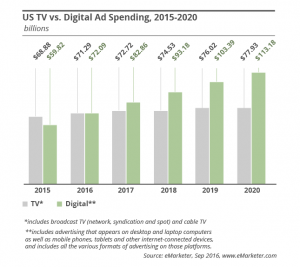In “The Ice Man,” Wim Hof writes, “People with low willpower tend to make poor choices in life, because they give in to short-term goals at the expense of longer-term goals.” How many of your decisions are based on short-term goals? You choose what looks good now, with little concern about how your decision will impact the long-term. Why? Because short-term goals masquerade as accomplishments and waiting for future gratification is intangible.
You have spent an entire lifetime living from one short-term goal to the next. You can not remember the last time you set a long-term goal. At this point in your life, you doubt that you have the willpower to rehydrate your willpower.
You Need A Reflective Space To Think Long Term
Chairman of Angel List Naval Ravikant reveals, “I don’t believe in any short-term thinking or dealing. All benefits in life come from compound interest, whether in money, relationships, love, health, activities, or habits. I only want to work on things I know have long-term payout.”
For millions of years, short-term thinking has served human beings well. The algorithm gave you a superpower in identifying clear and present dangers, as well as opportunities that fed Maslow’s Hierarchy of Needs:
- Physiological needs
- Safety needs
- Belonging needs
- Esteem needs
- Self-actualization needs
Regrettably, the superpower no longer serves you as well as it once did. Today, your culture no longer needs to identify clear and present dangers as well as opportunities. Instead, you need to foster a cultural discourse that illustrates all of humanity’s possible flight paths.
Ella Saltmarshe, a founder of Long Term Inquiry, argues, “Culture forms the operating system for our society. It’s foundational to the way science, politics, economics, and technology develop. It shapes how we feel, how we empathize, and how we connect with each other. It provides the reflective space to navigate complexity and uncertainty.”
Routinely Check On Your Goals During Think Week
How do you plan for the complexity and uncertainty of long-term decisions? Below are two strategies that might help you identify patterns and established behaviors:
Dedicate Time To Think About The Future.
The co-founder of Microsoft, Bill Gate, schedules think weeks’. Gates takes books, white papers, legal pads, pencils, and with a fridge stocked with Coke — he thinks. Bill is thinking long-term: he is identifying innovations in energy, sanitation, and artificial intelligence. Gates is trying to understand what world problems the Bill & Melinda Gate Foundation can help solve through these innovations.
Laura Stack, president and CEO of consulting firm The Productivity Pro observes, “People should have a ‘third place’ that isn’t work or home, where they can find focused time to think and create and clarify your strategic thinking,” Stack notes. “We must create an environment that gives us the ability to focus our minds without interruption from coworkers, spouses, children, pets and technology, or we’ll never be able to concentrate on higher-order activities.”
Routinely “Check In” On Your Long-Term Goals.
You should schedule the check-in on your calendar. You can use your think weeks’ to evaluate your progress and ask yourself questions that could reimagine goals:
- What if you were charged a fee for delivering a bad customer experience?
- What if everyone in your organization was an entrepreneur?
- What if your supermarket required no staff?
- What if all your customers had a 3D printer at home?
These are questions that impact the way you interpret long-term goals. The questions change how culture informs science, politics, economics, and technology. It provides the reflective space to navigate the complexity and uncertainty of the long-term.
Originally published here.
Business & Finance Articles on Business 2 Community
(43)
Report Post






